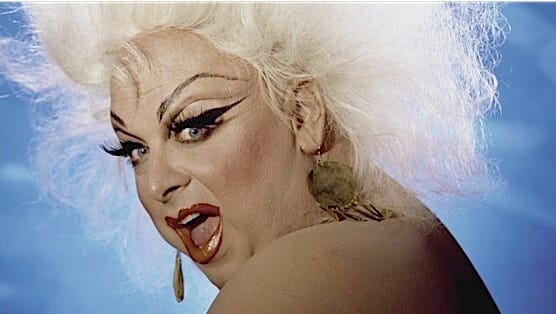I Am Divine

My parents have always loved John Waters. For reasons I can’t explain, my mom and dad were drawn to films like Female Trouble and Polyester. From a fairly young age, I knew who Divine was but the details of her movies were kept secret from me.
As a six-year-old, I found the taboo surrounding Divine to be incredibly alluring. Sneaking furtive glances at VHS envelopes for Mondo Trasho and Multiple Maniacs, Divine seemed like the stuff of nightmares. I was allowed to watch Halloween and Friday the 13th, but Pink Flamingos remained strictly off limits. It must be really scary, I remember thinking.
Even once I became old enough to appreciate John Water’s films, Divine still seemed like something verboten. She was deranged and psychotic—a weird, sexy, obese monster. So, of course, I couldn’t resist the opportunity to review Jeffrey Schwarz’s new documentary, I Am Divine.
Schwarz’s film covers the life of Divine (born Harris Glenn Milstead) from his early childhood in conservative Baltimore through his rise to fame as the “most beautiful woman in the world.” As I watched the documentary unfold, all my opinions and preconceived notions about Divine slowly vanished. What Schwarz uncovers in his movie—or at least, what he illuminates—is how kind, quiet and generous Milstead was, despite his outrageous alter ego.
-

-

-

-

-

-

-

-

-

-

-

-

-

-

-

-

-

-

-

-

-

-

-

-

-

-

-

-

-

-

-

-

-

-

-

-

-

-

-

-








































